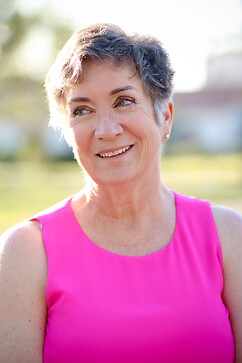Part 1: Be Your Own Advocate

All cancer patients face their own distinct journey. And while I hate my journey and wish I wasn’t on it, there’s one thing that I have learned during the last almost eight years since my diagnosis. You are your own best advocate. Don’t allow anyone medical or personal to gloss over your complaints. Looking back, I wish I had been louder about my extreme fatigue, cognitive problems, and balance issues because they were all symptoms of a brain tumor which was almost discovered too late.
The importance of self-advocacy
I learned about self-advocacy five years ago, a year after my initial cancer treatment. I was diagnosed with Stage 3 Breast Cancer in September 2013. My cancer was described as “ugly” by one oncologist and “aggressive” by another. There’s a standard clinical diagnosis: Stage 3 Pleomorphic Lobular Carcinoma, ER Positive, PR Positive (weakly), HER-2 Neu Negative. I’m still constantly learning what all those words mean!
Treatment cycles
First, I had a lumpectomy to determine what kind of cancer it was. Six months of aggressive chemotherapy followed. Then I had another lumpectomy along with lymph node removal. Radiation followed it. So, from September 2013 until the middle of July 2014, I was seated in chemo infusion rooms, lying on operating tables, or under radiation lamps. And working full time.
The dreaded side effects
Like many other cancer patients, I got sick and threw up. I missed work once in a while. I went completely bald. And I was very, very tired. All of which are standard complaints by we cancer havers. At the end of the radiation, I asked how long it would take me to get my energy back. Someone told me about a year. Settling into that year, I focused ahead to being healthy enough to take longer walks, enjoy others’ company, and be whatever normal ended up being.
The extreme fatigue was scary
Every three months, on my visits to the oncologist, I included a description of my growing fatigue. If I went to any other doctor – primary care doctor, dentist, breast surgeon, or oncologist - for anything, I was told that open ear about being so tired that I was punching the snooze button on my morning alarm seven or eight times. Or putting my head down on my desk. Or, I found out later, sleeping in our reception area chair for over an hour.
Back in the chemo infusion room
Everyone told me that recovery takes time. Be patient. You’re lucky to be alive. In July 2015, I went back to the chemo infusion room for my second Zometa treatment for osteoporosis. (Osteoporosis is one of my side effects of chemo.) One of the nurses cheerfully asked how I was doing and when I complained again about being so very tired, she said, “Oh, well, looks like you might be one of those patients who take three or four years to fully recover.” Three or four years? No way I wanted that. But I didn’t know what to do, other than to tell the doctor about it.
Side effects disrupting my day to day
Meanwhile, I was dragging my right foot whenever I walked. No one told me. I would have to take frequent breaks on a walk across the college campus where I worked. My daughter was alarmed that I could no longer walk quickly when we went to the mall. I could not organize an agenda, making people who were depending on that angry. I missed appointments, or showed up early, or didn’t show up at all for some presentations. Before any appointment in a new place, I would have my husband drive with me; I was afraid that I wouldn’t remember how to get somewhere unless I ‘practiced’ the day before. I drove fearfully, worried that I might hit someone, or bash into the front of the garage wall (which I did, taking off the driver’s side mirror on my car). I purposely parked my car so that I could drive forward out of a parking place; I dreaded backing up. And I absolutely would not park parallel to any curb.
Most people who observed some of these behaviors didn’t mention their worry to me. Some took my excuse of ‘chemo brain’ to heart. Some thought that I was just slow to heal or recover. Most did not know about my driving paranoias because I either didn’t express them, or hid them.
It got so bad I almost lost my job
In August 2015 all that changed. Angry when some student sent an email telling me I could not have a space that I had otherwise thought was reserved for orientation, I went into that office and yelled at him. Or so I’m told. I have no memory of that, other than the next day when my supervisor said some of the younger staff reported me. The agenda that I had been working on for weeks still could not be finished since I could not do the simple math of figuring out 15 or 30-minute increments for presentations. Taking me for coffee, my boss asked me what had happened to the person she had hired. Didn’t I want my job anymore? And did I realize that she was basically doing all my work? I went home that night and said to my husband, “If I were my boss, I’d have fired me today.”
Check out Part 2 of Be Your Own Advocate!
How do you advocate for yourself?
This is my story.
Join the conversation